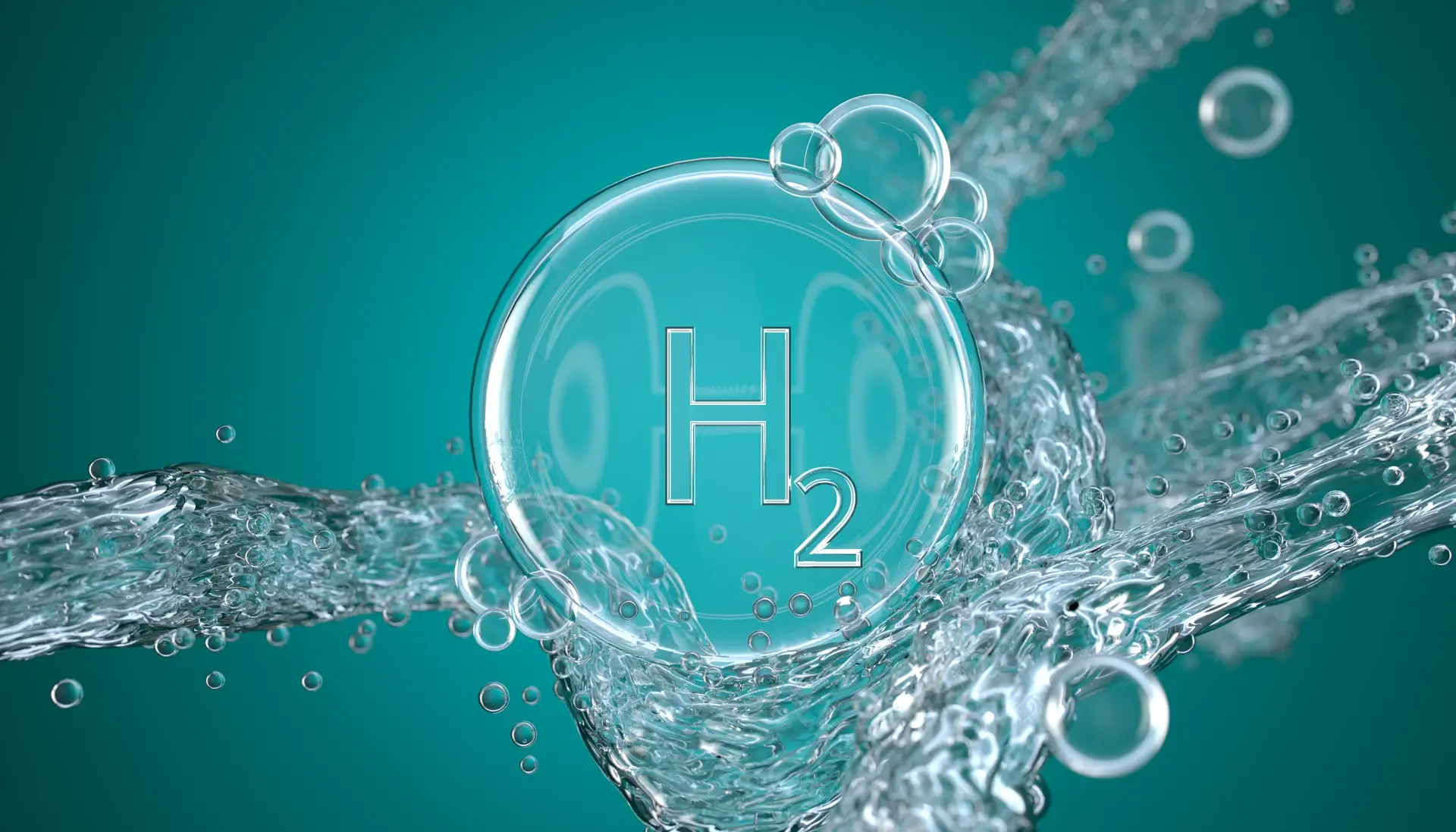
Hydrogen (H2) is the lightest element in the periodic table, the most abundant chemical element (estimated to contribute 75% of the mass of the universe) and a fast-burning gas. It is a clean alternative to methane (natural gas) with no colour or smell and a high laminar flame speed – making it a compatible and future fuel for gas engines.
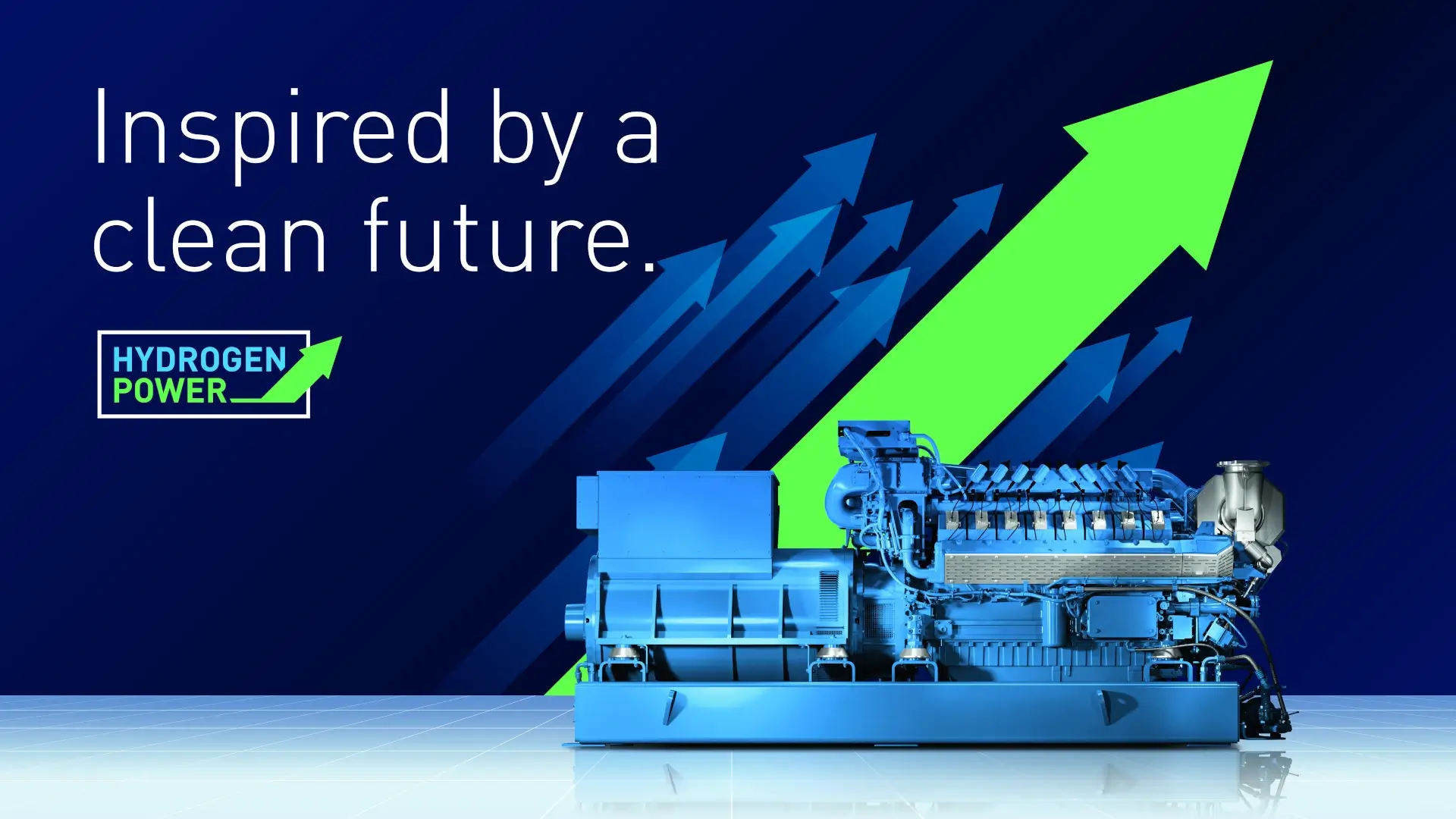
Reduction in NOx emissions
Reduction in CO2 emissions
Improve carbon positioning
There are many different types of hydrogen. The three main types are green, blue, and grey though brown was historically the most common being created through the burning of fossil fuels.
Green hydrogen is produced by splitting water into hydrogen and oxygen by electrolysis, the excess oxygen is then vented with no negative effects as the power this process needs to react is supplied by renewable energy sources such as wind or solar.
Blue hydrogen is created when natural gas is split into hydrogen and carbon dioxide, this is achieved by the processes of Steam Methane Reforming (SMR) or Auto Thermal Reforming (ATR). The CO2 is captured and stored via Carbon Capture Usage and Storage (CCUS) – preventing any negative environmental effects.
Grey hydrogen is produced using fossil fuels like natural gas. The hydrogen is separated from the methane and hydrocarbons by a process called steam reforming. This process is endothermic and requires heat. This produces hydrogen, carbon monoxide and carbon dioxide, which is released into the atmosphere.
When pure hydrogen is burnt, it reacts with oxygen to create water vapour, releasing energy. Though if burnt with atmospheric air instead of pure oxygen, this can also create nitrogen oxides, though much less than with a petrol engine. Hydrogen can both be used directly and in combination with other gasses such as methane (CH4) when powering gas engines, this means that possible harmful emissions vary in scale dramatically.
MWM have over 23 years’ experience and over 150,000 operating hours with specialised customer projects running fuels containing up to 60% hydrogen by volume produced from coke oven gas.
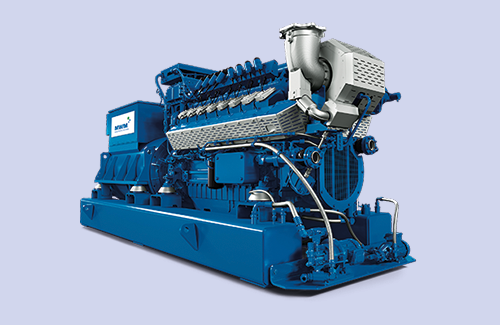
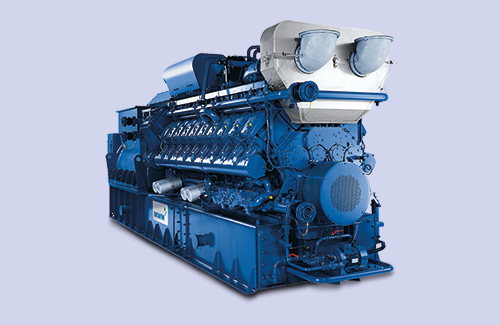
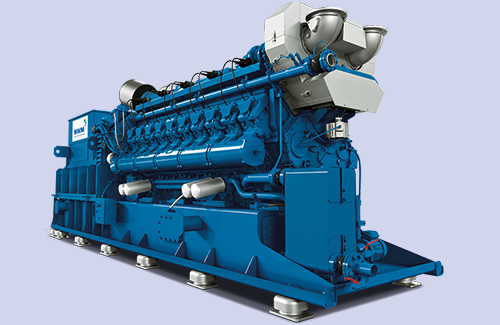
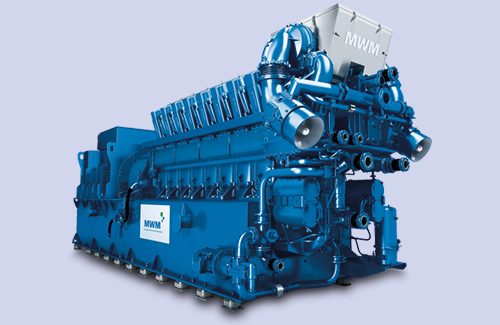




Copyright © Edina. All Rights Reserved.